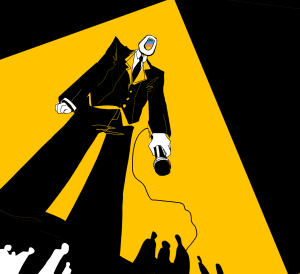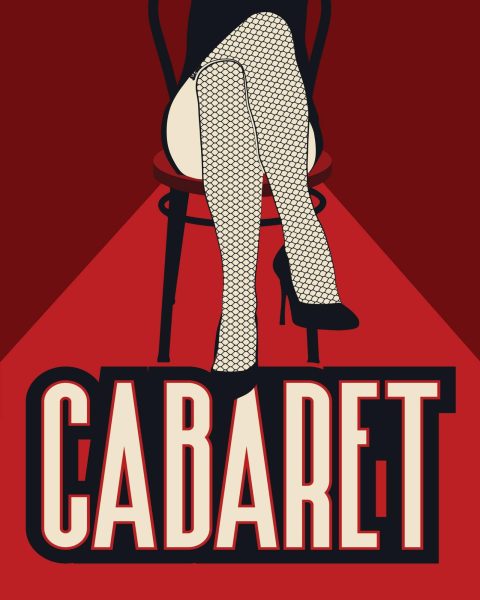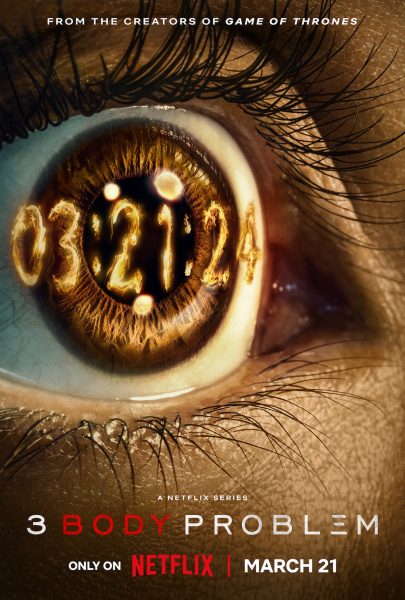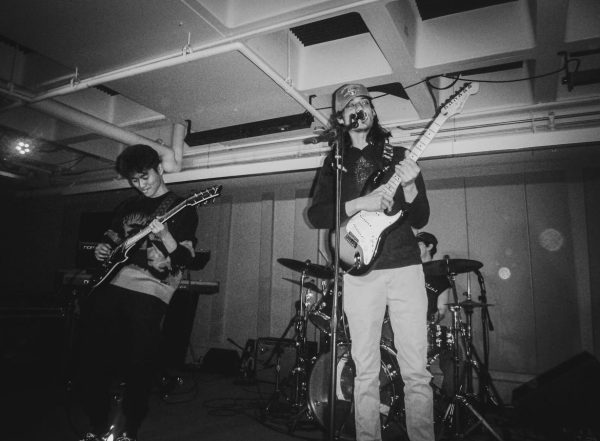“The College Dropout,” 15 Years Later
February 22, 2019
Fifteen years ago, Kanye West began his iconic discography with “The College Dropout,” (TCD) which came out on Feb. 10.
West began as a producer and originally made a name for himself by selling beats on a local level. Eventually, he was able to get recognition from rappers such as Jay-Z and Nas through his innovative beats. What made his style so groundbreaking at the time was the sped up samples from R&B mixed with soul and explosive drums that appealed to a variety of rap artists.
But West wanted to make it big in the music industry with his own songs. He faced opposition when trying to start out as a rapper because everyone just wanted one of his beats. Eventually, he was able to get a contract with Roc-A-Fella Records, Jay-Z’s former record label, and spent four years recording “The College Dropout.”
Filled with both emotional and humorous raps and features from some of the most popular artists at the time and his own production, “The College Dropout” debuted at No. 2 on Billboard, selling nearly half a million copies in its first week alone. But how does it hold up? Is Time Magazine right in naming it one of the 100 greatest albums of all time?
The album begins with a skit, one of many included in the album, that flows perfectly into the first song “We Don’t Care.” This song has a “classic” sound with all the claps in the beats, setting a good rhythm that makes it an easy listen.
The next song, “Graduation Day,” is half-skit, half-melody that doesn’t hold up to the rest of the album, especially when immediately followed by “All Falls Down,” one of West’s most recognizable songs. “All Falls Down” has a soulful melody with excellent production, making it one of the greatest songs on the album.
“I’ll Fly Away” is a short rendition of an early 20th century gospel hymn and is easily forgettable, but it adds to the transition to the next song, “Spaceship,” which many also consider one of West’s greatest tracks on the album.
“Spaceship” tells the story of West trying to make it in the music world while also working minimum wage jobs. Many feel as though “Spaceship” is underappreciated, but it is hard to stand out when surrounded by some of his most acclaimed songs.
“Jesus Walks” is hands down one of West’s greatest tracks of all time. His powerful lyrics in combination with the beautiful mix of soul and drum production won West a Grammy for Best Rap Song.
The hit is followed by “Never Let Me Down,” which features Jay-Z. This song again has an interesting soul/R&B production that fits extremely well with Jay-Z’s lyrical style. It is a touching song that has a good beat behind it with an incredible hook that flows smoothly into the following verses.
The next song, “Get Em High,” is not bad. However, when compared to the prior tracks, it fails to meet the high bar they set. With 21 songs/skits on TCD, “Get Em High” is one of the few songs that I would consider dropping from the album.
“The New Workout Plan” is one of West’s humorous tracks on the album. A catchy beat behind fun lyrics separates it from the rest just for the unexpectedness of it all.
Next we have “Slow Jamz,” one of his longest tracks at five minutes and 16 seconds. It also has some fun lines from West but those are overshadowed by features from Twista and Jamie Foxx, both of whom make the song worth listening to again and again.
“Breathe In Breathe Out” features Ludacris and is definitely more a product of its time. Hard hits with a typical drum beat behind make this song lack the “Kanye-feel.” But don’t let that stop you from listening to it, “Breathe In Breathe Out” is still an excellent song.
The three skits that follow bring the title into focus. They highlight the fact that society pushes kids into college without a plan for what to do afterward. It is a sentiment shared by many, and the track that follows is ironically named “School Spirit.” This song has a chill vibe with a solid beat and continues with the themes introduced in the skits.
The next song is “Two Words” and features Mos Def, Freeway and the Boys Choir of Harlem. West’s excellent production blends the choir and R&B samples with drum hits to create a beat that is impossible to ignore. Unfortunately, it is overshadowed by another one of West’s greatest tracks.
“Through the Wire” tells West’s story of getting into a car accident and nearly dying. He overcame the ordeal and raps through the wire in his jaw, hence the title of the track. The beat behind is a classic West beat with sped up and repitched samples that flow well with his verses.
The penultimate song, “Family Business,” is where West gets emotional in his lyrics. He thanks his family for believing in him and making him into the person he is today. He reminisces over his past and brings the song together over a soft piano and drum beat with choir samples that can bring a tear to the eye.
The final song starts out melodic and brings the smooth soul-styled beat that West excels at. It transitions into a spoken outro over the same beat where he discusses how he came to make the album. The track may have benefited from being split. As it is, the song lasts nearly four minutes, while the outro lasts nearly nine minutes. Both add an excellent conclusion to the album, matching the mood while still being distinct.
So does the album hold up? Absolutely. The beats have a classic feel and while the hits may be overplayed, in the album they fit perfectly. At just over an hour and 15 minutes, it is easy to listen to while walking to and from your classes.





















